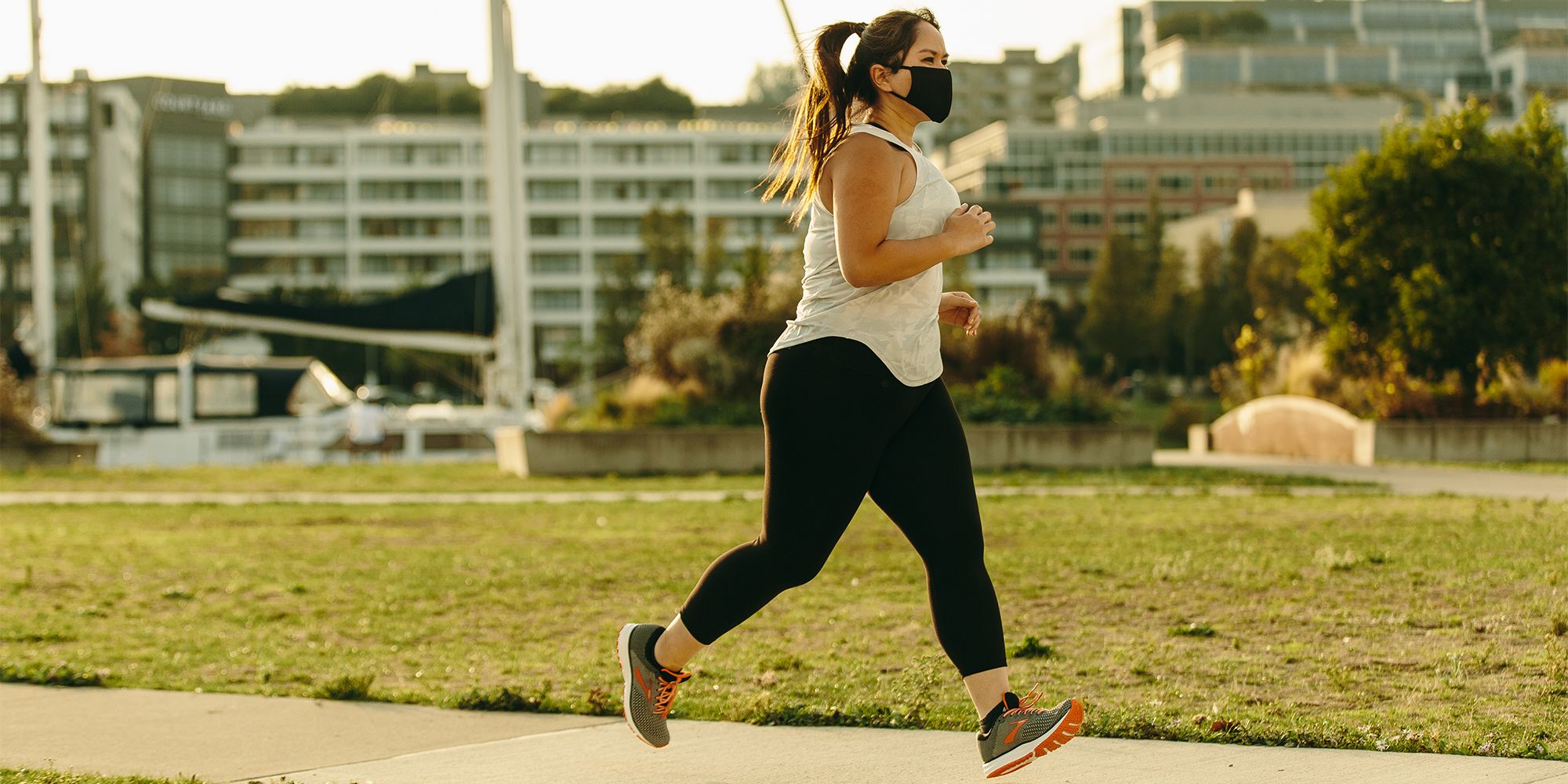Jogging might not seem like the most exciting way to exercise, but just because it’s not as sexy as other cardio exercises doesn’t mean it’s not effective. Not only will jogging help you lose weight and get in shape, it can also improve your heart health and lower your risk of developing heart disease and diabetes later in life. Here are some of the unexpected health benefits of jogging that you might not know about!
What is jogging?

When most people think about jogging, they don’t think it’s any good for their health. But research has shown that light to moderate jogging is good for your heart and anti-aging. It’s easy on your joints and strengthens your bones, muscles, and stamina. The benefits are surprising. When done in moderation and paired with a healthy diet, it may help you: reduce belly fat improve mental focus boost serotonin levels sleep better stave off diabetes reduce appetite keep blood pressure under control lessen stress fight osteoporosis
In a nutshell, jogging is a type of aerobic exercise. It’s physical activity that gets your heart pumping and breathing deeper, which increases oxygen and nutrients to your cells. It’s also low-impact: because you’re not jumping or jarring your body with rapid movements like in weight training, there’s less strain on your muscles and joints than in other exercises. As a result, it helps prevent injury while increasing stamina. And because it doesn’t strain certain muscles as much as others, you can strengthen your heart faster when you jog regularly.
What does jogging do for your body?

Running releases endorphins which help keep you happy and motivated, and it helps make you sleep better. On top of that, jogging can lower your blood pressure, control cholesterol levels and reduce your risk for heart disease. Jogging also strengthens bones by reducing your risk for osteoporosis, helps improve muscle tone and prevents some forms of cancer like colon cancer in women (because regular exercise can help strengthen muscles that support waste elimination). A study from Brigham Young University reveals that a daily jog might have anti-aging effects because it provides youthful effects to cells on the cellular level.
In addition to these benefits, a study conducted by Brigham Young University discovered that daily jogs may have anti-aging effects because it is equivalent to a fountain of youth for cells. According to them, regular exercise helps create more micro-capillaries, which then allows your body to deliver oxygen and nutrients more efficiently. So even if you’re young and healthy, daily jogs can reduce your risk for future health problems and diseases. In summary, there are many health benefits associated with jogging – from improving overall fitness levels to preventing cancer – so get out there and jog!
How does jogging help with weight loss?

If you want to lose weight, you need to burn more calories than you consume. But even if you don’t have your heart set on slimming down, exercise still has plenty of health benefits. According to a review in Obesity Reviews, regular physical activity can reduce your risk for heart disease and stroke, control blood pressure and improve blood sugar control (especially if combined with diet changes). Regular aerobic exercise can also boost mental health and mood by increasing endorphins and lowering stress hormones such as cortisol. Research even shows that exercise may help stave off cognitive decline associated with aging and Alzheimer’s disease.
Can anyone jog?

Cardiovascular health is directly related to physical fitness, and you can’t be in good shape if you’re not able to run. You can start slow and build endurance gradually, but unless your knees are bad or you have some other major medical reason for avoiding cardio exercise, there’s no excuse for completely shunning it. If you think that jogging is too boring or strenuous, consider trying an activity like rollerblading or cycling instead; these activities are typically easier on your joints than running, making them much more accessible. Just remember that there’s no shortcut around hard work: if you want to get fit and stay fit, physical exercise is a must.
The benefits go beyond weight loss, too. While increasing your physical fitness will naturally improve your blood pressure and cholesterol levels and reduce your risk of heart disease, jogging has also been shown to boost mood. That’s because as you jog, you burn endorphins that act as a natural painkiller and euphoric—the same endorphins that make us feel good after exercising. If you’re concerned about joint pain or just enjoy cycling or swimming more than running, there are ways to get those same health benefits without actually putting on your shoes and going for a jog. The key is to stay active.
Are there any benefits to jogging alone?

You might think that jogging alone is pointless, but jogging alone can be quite beneficial. Not only does jogging help you improve your physical health, it also helps you to build stamina and endurance. Both physical and mental health are better when you exercise on a regular basis; consider adding jogging to your routine if you don’t currently jog. You may find that not only do you become more physically fit, but mentally fit as well. The health benefits associated with physical activity extend far beyond just weight loss and muscle gain. One study showed that as little as 15 minutes of moderate-intensity exercise daily could extend your life by three years!
When it comes to physical health, jogging has many benefits. One of them is weight loss. If you’re carrying around extra weight, jogging can help you get rid of that excess fat; if you want to lose weight without suffering any adverse side effects like exhaustion or constant hunger, aerobic exercise—like jogging—is one way to go. You don’t have to work out hard all day in order to see results; a minimum requirement is 30 minutes per day on most days (with no more than two consecutive days off). Other benefits include reduced blood pressure and improved heart health. One study suggests that regular exercise could decrease your risk for developing heart disease by up to 25 percent!
What shoes should I wear while jogging?

If you’re just starting out, wear shoes with plenty of cushioning. Later on, after your body has adjusted to regular jogging, you can switch to a more lightweight shoe without fear
You should also wear breathable clothing. You’ll be sweating a lot, so you’ll want clothes that let your sweat evaporate as quickly as possible, keeping you cool and dry. Sun protection is important too, especially if you run during peak hours in warmer months. You may even want to invest in some running sunglasses to keep your eyes protected from UV rays.
In some areas, you’ll have to contend with all kinds of weather. You might be jogging in blazing heat, or sloshing through puddles when it rains. Your shoes should be able to handle all conditions without compromising your feet’s comfort or safety. Lightweight trainers are better for short distances, but those running for extended periods need to invest in sturdy running shoes with extra arch support and shock absorption.
How do I find motivation to start or continue jogging?

Running gives you a good sense of accomplishment, and it’s also easier to keep up with than other kinds of exercise. Once you start doing it regularly, you’ll probably find that your body craves running—it just feels good. But if it seems like too much work to get out there every day, give yourself a few days off from jogging as motivation to go back. Maybe commit to going every second or third day for a week or two, then once you get into a routine consider pushing yourself a little more: Add more miles per workout or try intervals instead of steady-paced jogging. You’ll be amazed at how quickly your endurance will grow if you just stick with it!
Jogging is a great way to start because not only does it help with your health and fitness, but also can have a positive effect on your mood. It improves sleep quality, decreases stress levels, and improves self-esteem. Exercise is even one of the easiest ways to be more optimistic about life. If you’re feeling unmotivated to go out, just pair it with something you like doing – it might work. For example, one of the suggested tactics for conquering exercise can be listening to your favorite music on your way to your workout–studies have shown that listening to music during a workout can make the workout seem less strenuous and a little more tolerable.













